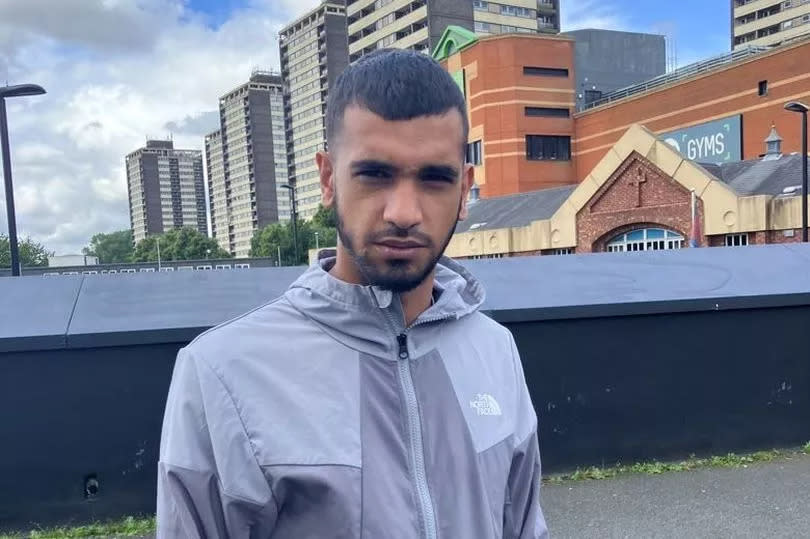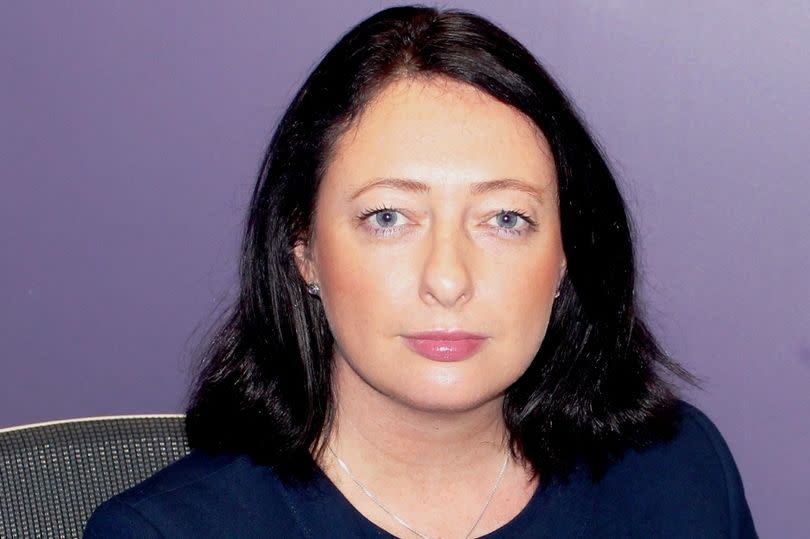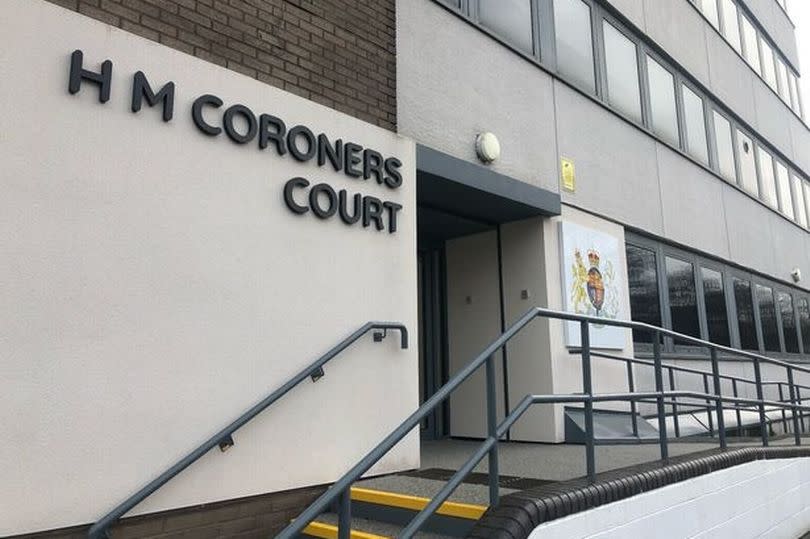An 11-year-old girl who dreamed of becoming a lawyer died after her brother punched her in the head in anger, and her family tried to cover up the incident.
Falaq Babar, described as the ‘princess of her family’, was seen bathing another of her siblings in the bathroom of the family home in Bury Road, Rochdale, in February 2022.
The teenager was then hit with an ‘unprovoked, indefensible punch’ by her brother Suhail Mohammed, 23. Just 21 minutes after an ambulance was called, he sent messages to his girlfriend saying he had ‘killed’ his younger sister.
In the message, he wrote that he had ‘punched her in the head’. Falaq died in hospital a month later.
READ MORE: Rochdale MP says ‘Extremists trying to exploit Manchester Airport incident’
In the texts, Mr Mohammed said he was ‘screaming’ and ‘in the heat of the moment’. Senior coroner Joanne Kearsley said she ‘genuinely’ found Falaq had been hit with an ‘unprovoked, indefensible punch’ but said she would not be reporting the case to Greater Manchester Police or the Crown Prosecution Service (CPS) because of the evidence heard at the inquest.
Kearsley found Falaq had ‘an underlying malformation of unknown origin, described as extremely rare’ in the brain.
Giving evidence, Detective Chief Inspector Stuart Round said he felt there was ‘sufficient evidence’ to consult the Crown Prosecution Service about Falaq’s death and referred to a possible manslaughter charge. However, he said the CPS had decided ‘there was no case’, believing this was down to the ‘complexities’ of the medical evidence.

In his ruling on Friday, the coroner said: “Sadly, although the punch was not intended to cause harm, it is likely that this punch caused Falaq to become immediately ill and have difficulty walking.
“I’m sure this would have caused him to become anxious when he regained his balance, he was complaining of pain, indicating that he felt like he was dying and needed to get help down there. This anxiety and possibly the increase in his blood pressure could have caused the unknown malformation in his brain to rupture.
“I therefore conclude that on the balance of probabilities Falaq was unlawfully killed.”
Mr Mohammed was arrested after the death and a ‘suspicious assault’ investigation was launched, but the inquest heard the CPS decided no further action would be taken after a file of evidence was presented to them.
The inquest heard he was questioned again by Greater Manchester Police after the text messages were discovered but he refused to answer any questions.
The court heard Mr Mohammed told police he used ‘a bit too much force’ to open the door and ‘forced’ Falaq ‘with his shoulder and elbow’ before finding him ‘on the floor’ near the radiator.


He said he pushed the door from the outside and heard Falaq ‘arguing’ with a younger brother who wanted to come in. Falaq was inside washing one of the brothers at the time.
Kearsley said paramedics at the scene “at no stage” did they suggest Falaq had been punched.
The inquest heard Falaq’s parents refused to allow Greater Manchester Police to question the other children, while Mr Mohammed’s girlfriend also refused to co-operate with police.
The coroner said it was ‘difficult to understand’ why the family were ‘so reluctant to discuss with GMP the possibility of at least speaking to his younger siblings’.
He said the statements taken from all members of the family were ‘an attempt to hide or cover up’ the fact that his brother had punched him.
Ms Kearsley said: “The evidence given by all the family members was inherently improbable, inconsistent and unconvincing. I am satisfied that the evidence given was inherently exculpatory and untrue. It was made in an attempt to conceal or cover up the fact that Falaq’s elder brother had struck him in a fit of rage.”


He said Falaq and the brother who wanted to enter the bathroom ‘probably’ argued and Mr Mohammed became ‘irritated’ by the noise. He ‘shouldered’ the door with ‘significant force’ and gave Falaq no warning.
In her judgment, Ms Kearsley said: “I found it [Mr Mohammed] He acted in the excitement of the moment and probably with some disappointment.
“After he hit his shoulder on the door, I find on the balance of probabilities that he punched Falaq in the head. This is entirely consistent with the evidence from the same period, particularly the text messages Suhail sent to his girlfriend and the comments he made about punching Falaq. It is not possible to determine from the evidence whether Falaq also hit his head on the door or the wall.
“I must emphasise that there is absolutely no evidence in court that Falaq’s elder brother’s action was done with the intention of killing him or causing him serious bodily harm. This is not murder.”
He said Mr Mohammed was ‘acting out of frustration and irritation because of the noise’.
“This was an unlawful act and amounted to an unreasonable and excessive use of force,” Kearsley added.
The investigation into Falaq’s death was significantly slowed down last year after potential new evidence emerged.
Ms Kearsley said it had become ‘evident’ that family members – particularly Mr Mohammed and Falaq’s grandmother Zabida Bibi – could be heard ‘talking amongst themselves’ on the 999 call. The recording was enhanced and specialist interpreters were brought in.


The coroner said he heard Ms Bibi say, “Did he punch/attack her?” or “Who shot him?”
Mr Mohammed was also heard saying, ‘We pray to Allah that we do not create a big scene as it is early in the morning’ or ‘It will not be announced in the morning (we are not announcing it)’, the decision added.
Consultant neuropathologist Dr Daniel Du Plessis said the reinvestigation found it was a ‘complex case’ and Falaq had suffered a bleed on his brain.
Surgeons operated, he said, but “major damage” had already been done. He said the subsequent bleed from a “small but vital” blood vessel that Falaq suffered was “very rare” and “vanishingly rare”.
He offered three possible scenarios: Trauma caused a healthy vein to rupture; trauma caused a vein that was weakened by an underlying problem to rupture; and an increase in blood pressure caused the vein to rupture.
“I can’t separate them,” said the expert, adding that a pre-existing, naturally occurring lesion “overrides” other causes.
Ms Kearsely said: “Considering all this, it is likely that Falaq had a pre-existing, unknown abnormality, namely an arterial venous malformation of the posterior inferior cerebellar artery. This is an extremely rare condition. Falaq and his family could not have known about it.
“It is likely that Falaq experienced anxiety and high blood pressure as a result of the trauma he suffered, which directly led to the rupture of cerebral vessels and brain hemorrhage.”